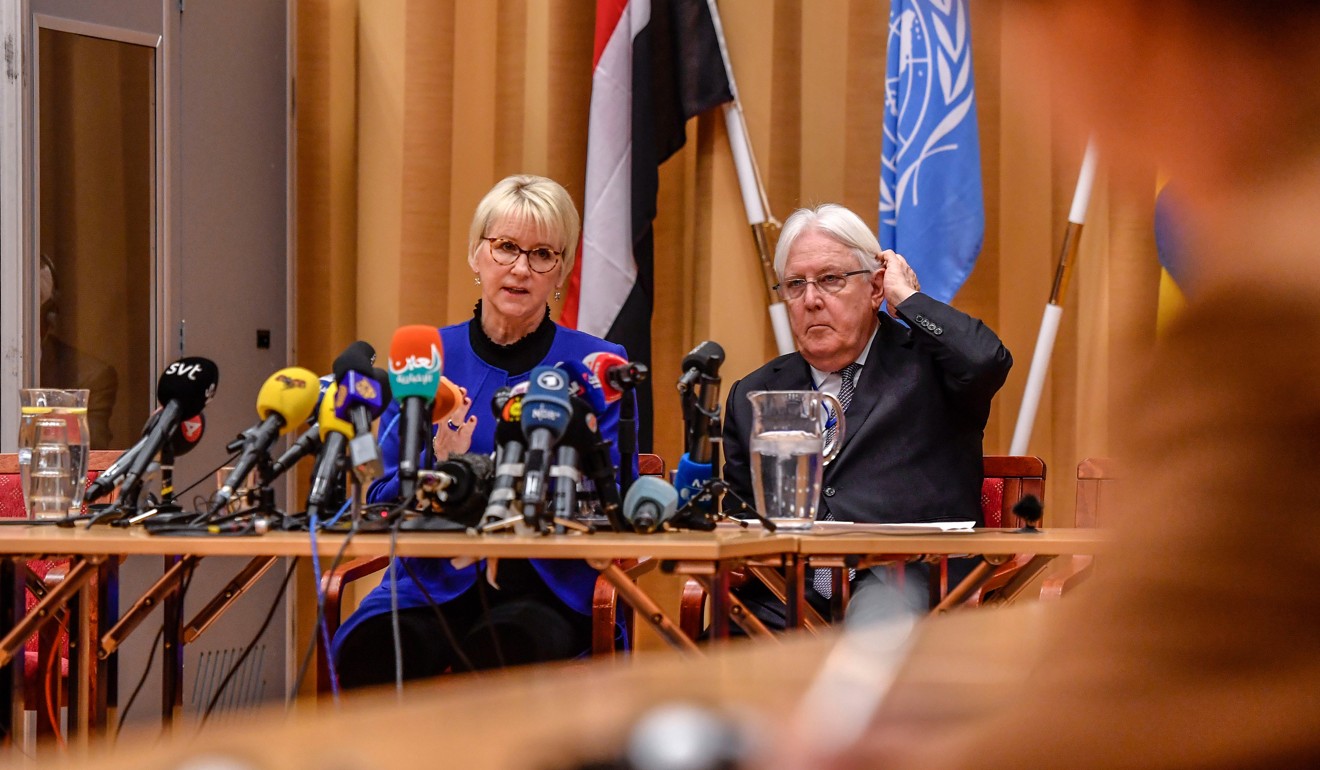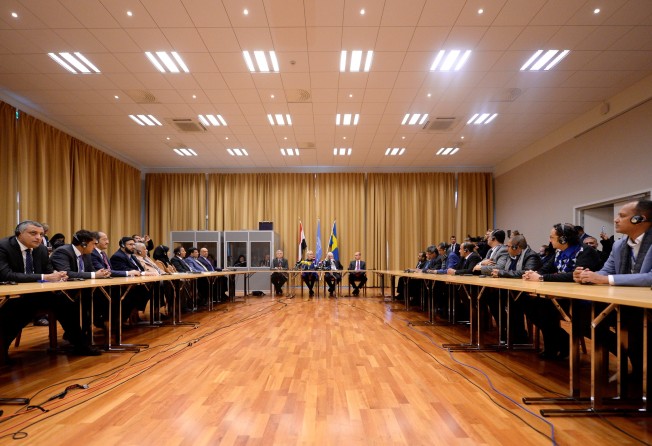
Yemen peace talks open with prisoner swap that will set 5,000 people free as Houthi rebels meet with government representatives
- Warring sides meet in Sweden for discussions that aim to quell three-year civil war

Yemen’s warring sides have agreed to free thousands of prisoners at the start of crucial peace talks aimed at ending a devastating conflict that has pushed millions of people to the verge of starvation.
Martin Griffiths, the UN special envoy, started shuttling between Houthi rebels and representatives of the Yemeni government, based in a castle just outside Stockholm on Thursday morning.
The Arab world’s poorest nation has been gripped by a three-year civil war fought between the Iranian-backed Houthis and a government largely backed by Saudi Arabia and the United Arab Emirates.
“During the coming days we will have a critical opportunity to give momentum to the peace process,” Griffiths told reporters.

Griffiths said his initial aim for the talks, the first since 2016, was to secure some confidence-building measures including the prisoner swap, the reopening of the airport in Yemen’s capital, Sana’a, and the possible UN administration of the strategic Red Sea port of Hodeidah, through which almost 80 per cent of international aid enters the country.
The prisoner swap deal would reunite thousands of families, Griffiths said. The International Committee of the Red Cross (IRCC) said at least 5,000 people would be freed.
Griffiths hoped that this first phase of the talks could culminate in a UN Security Council resolution endorsing the implementation of a ceasefire that would mean the end to Saudi-led coalition air strikes. In return, the Houthis would have to agree to end missile strikes on Saudi Arabia.
Mohammed Ali al-Houthi, head of the Houthis’ supreme revolutionary committee, said in a Twitter post that if no deal were reached to reopen the airport, his movement could close it on the ground to all traffic, including UN flights.
For its part, the Saudi-backed government said the Houthi rebels would have to leave Hodeidah before it would agree to the port being handed over to UN administration.
The government said the Houthis had persistently used the port as a way to raise income and to smuggle in arms. As many as 150,0000 civilians remain trapped in the city, victims of air assaults and the Houthis’ capture of local hospitals.
Aid agencies and the UN have put relentless pressure on the Saudis, backed by the United Arab Emirates, not to mount a full-scale assault on the port, but the Saudis see its capture as the gateway to a military victory that has eluded them since 2015.
Yemen collapsed into crisis, creating mass food shortages and near economic bankruptcy when Houthi rebels captured Sana’a in 2015.
“We’d like to take Hodeidah out of the conflict because … it’s the humanitarian pipeline to the rest of the country,” Griffiths said. Fabrizio Carboni, the Middle East IRCC director, said he hoped that the prisoner deal would help to build trust for a political solution to the conflict. “The population is exhausted – it has been waiting too long for concrete actions,” he said. “Every day people die in Yemen because of intense fighting, preventable diseases, hunger and extreme poverty.”
The UN food agency said it was planning to scale up food distribution rapidly to help another four million people in Yemen over the next two months, more than a 50 per cent rise on the number currently reached. The target population includes three million women and children who need special support to prevent malnutrition, a spokesman said.
Unicef’s Middle East director, Geert Cappelaere, said at the end of his visit to Yemen: “The living conditions of millions of children in Yemen are a disgrace. There is no excuse for these dark realities in the 21st century. Wars, deep economic crises and decades of underdevelopment have not spared a single girl or boy in Yemen. The suffering of children is all man-made.
“The toll of almost four years of the recent fighting across Yemen is mind-boggling, with more than 2,700 children recruited to fight an adults’ war. Over 6,700 children were verified killed or severely injured. Nearly 1.5 million children have been displaced, many of them living a life that is a mere shadow of what childhood should be.”